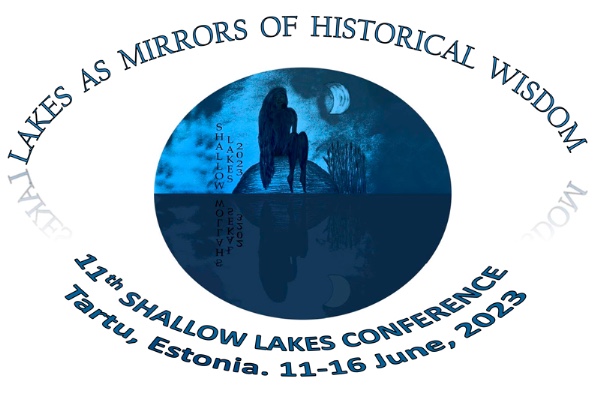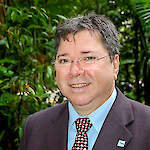- Program
- 13 June 2023
13 June 2023
The conference will take place in Estonian National Museum, address Muuseumi tee 2, Tartu. Google maps link HERE
At 8:35AM, a bus from Vanemuise theatre lower parking lot will start driving to the event.
The bus will have the „11th Shallow Lakes Conference“ logo by the front window.
HERE is the Google maps link to the location of the bus parking spot.
15 minutes after the official end of the conference day, a bus will take participants back to the center of Tartu.
It is also possible to come to the event by foot, Estonian National Museum is approximately 2km from the Center. Various ohter transportation methods can be found here:
Agenda
10:15-10:35 Lake monitoring in Denmark since 1989
10:35-10:55 Outcomes of the littoral monitoring of a large shallow lake: a case of Lake Peips
10:55-11:15 Long-term development of phytoplankton production in a shallow lake: Can global warming ruin successes in nutrient load reductions?
11:15-11:35 Three decades of macrophyte dynamics on the shores of a large shallow Lake Peipsi — a retrospective series of satellite images
11:35-11:55 Long-term management of Lake Tuusulanjärvi in six decades - from despair to hope
Aliise Moora Auditorium
10:15-10:35 Preparing for the future offspring – European perch (Perca fluviatilis) biosynthesis of physiologically required fatty acids for the gonads happens already in the autumn
10:35-10:55 Environmental impact on food web allochthony
10:55-11:15 Benthic algae in a changing environment - the winners of oligotrophication?
11:15-11:35 Lake restoration induces a pelagic niche shift by fishes in a eutrophic lake
11:35-11:55 Large-scale experimental test of effects of fish on periphyton biomass in a temperate hardwater lake dominated by charophytes

14:00-14:20 Climate change impact on Estonian lakes
14:20-14:40 Understanding the effects of salinization and climate change on shallow lakes using space-for-time-substitute sampling and two synchronized mesocosm experiments in two different climates, Türkiye
14:40-15:00 Increasing nutrients affects biomass, community composition, phytoplankton production and transfer of omega-3 fatty acids in boreal lake food webs
15:15-15:35 Marinas favour more homogeneous periphytic diatom assemblages - a case study from a large shallow lake (Lake Balaton, Hungary)
15:35-15:55 Experimental warming enhances CO2 uptake in freshwater cyanobacteria-dominated communities but with poor carbon incorporation toward higher trophic levels
15:55-16:15 Climate change, variations in salinity, and its impacts on ecosystem structure: a mesocosm experiment with a Pampean dry-and-flood frame
16:15-16:35 Allelopathic effect of copepod-conditioned medium on the population growth of Brachionus havanaensis (Rotifera)
16:35-16:55 Effect of water oxygen regime to the diurnal fish movement in Amazonian white- and blackwater floodplain lakes in high and low water seasons
Keystone species Chydorus sphaericus in shallow eutrophic Lake Võrtsjärv (Estonia) – 57 years of continuous zooplankton monitoring and research
Kätlin Blank
Limnological research in the shallow Lake Saukas, Latvia
Laura Grinberga
Potentially toxic cyanobacteria in Lake Peipsi: use of microcystin gene copies to determine the potentially toxic Microcystis spp. in Lake Peipsi
Margarita Esmeralda Gonzales Ferraz
Large shallow lakes and lagoons in Europe
Roel Doef
Lake Engure long-term fish diversity
Jānis Dumpis
Analysis of time series of the Essential Climate Variables of shallow lakes from Lakes_cci dataset
Mariano Bresciani
Transgenerational physiological effects of an herbicide on the diatom Gomphonema parvulum
Diána Lázár
Blue Lakes: Digitizing the carbon sink potential of boreal lakes (EU RRF project 2023-2025)
Tom Jilbert
A shift in the regional climate regime strongly affects Peipsi fish
Külli Kangur
Lake water quality estimation using remote sensing and artificial intelligence applications
Kaire Toming
Spatial and temporal variability of bottom sediments characteristics in a shallow lake under backwater separation and EM application
Renata Dondajewska-Pielka
From headwaters to downstream – a multi-approach restoration project of Siuntionjoki river system
Jussi Vesterinen
Development of physico-chemical water quality parameters in a Boreal lake during ice break-up period
Miina Matilda Heinonen
Phosphorus retention mechanisms under a comparative performance analysis of Polonite and Rådasand for the treatment of hypolimnetic water of Lake Hönsan, Sweden
Frederico Aragão Cardoso
How do phosphorus dynamics compare between stratified and non-stratified areas of human-impacted boreal lakes?
Siqi Zhao
Nitrogen and its expected impacts in Estonian lakes
Tiina Nõges
Satellite-based tools towards estimating the intensity and frequency of phytoplankton surface blooms for improving monitoring strategies for lake ecological assessment
Krista Alikas
Phosphorus in lake sediments - back to the catchment?
Anu Kisand
Helmi-programme restores the waterfowl habitats in Finland
Laura Härkönen
Phosphorus in Estonian soils, surface waters and lake sediments
Peeter Nõges
Sediment phosphorus dynamics in Lake Saadjärv from past to present (1900-2020)
Mukadder Evin Karakoyunlu
Site-specific δ15N signatures of two Estonian hypertrophic lake sediment records
Merlin Liiv
Exploring subfossil Cladocera as a proxy for reconstructing past environmental conditions in lakes of Baltic states
Anna Lanka
Understanding the effects of salinization and climate change on shallow lakes using space-for-time-substitute sampling and two synchronized mesocosm experiments in two different climates, Türkiye
Cihelio Alves Amorim







